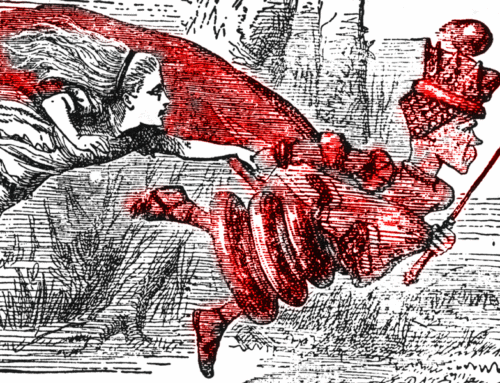I can hear you thinking (those of you who know me), “What about BHAGs (big, hairy, audacious goals) and ‘big thinking’ and even ‘big ideas’ – you believe in those things?” True enough. Now, please read the title of the post again… “no more grandiose…”. Grandiose.
Grandiose means “impressive because of unnecessary largeness or grandeur.” Grandiose in business is the equivalent of celebrities being famous for being famous. Impressive, but large for the sake of being large.
Grandiose plans and ideas in business tend to come from people who either don’t understand their business, their customers, their industry or who don’t have a firm grip on their reality (a large insecurity that needs to be satiated with oversized plans and ideas primarily because they’re oversized).
These are not the ideas or plans that upend markets and restructure entire industries… or create new ones (think iTunes or Amazon). Those ideas and plans are characterized by intense rigor, profound understanding (and insight) of capabilities, markets and customers, uncommon clarity of purpose and intent, along with the courage and wherewithal to “go the distance” to make the idea or plan tangible in a future “current reality.”
Grandiose plans and ideas are the opposite – shoot from the hip, based on a hunch, with a fuzzy picture of the desired end state, and are promoted with more bravado than courage, with more pomp and circumstance than sweat, and finally the commitment lasts until the fist significant hurdle or setback or until a newer, shinier grandiose idea comes along.
When the topic of “big ideas” comes up people like to use the John Kennedy “put a man of the moon” example. Okay, let’s use it. On May 25, 1961, President Kennedy addressed a joint session of congress and in that speech declared that we should commit ourselves to putting a man safely on the moon by the end of the decade.
Consider what Kennedy understood and the insights he had before the point of the speech (the context):
- The United States needed to catch up and overtake the Soviet Union in the “space race.” This was a matter of national pride. The USSR had launched their Sputnik satellite in 1957.
- The country, and his administration in particular, had recently suffered a world-wide embarrassment with the failed Bay of Pigs invasion in Cuba.
- According to his advisors – Vice-president Johnson, NASA Administrator James Webb and others, the United States had a lead in this daunting technological challenge.
- The American people were eager for a chance to re-assert global leadership.
- Prior to the speech and commitment, there was much consultation, deliberation, debate and consideration prior to a “go” decision. This would be a “long haul” and required a long commitment, by everyone.
Along the way there was enormous human effort and expediters – only the Panama Canal and the Manhattan Project were similar in scope and effort for peacetime initiatives. There were setbacks and challenges, such as the Apollo 1 tragedy. On July 20, 1969, Apollo 11 commander, Neal Armstrong stepped onto the surface of the moon.
I watched it live. It was great, but not grandiose.
In Other Words…
“Almost always great new ideas don’t emerge from within a single person or function, but at the intersection of functions or people that have never met before.” – Clayton Christensen, The Economist, June 13, 2013
“But the truth is, it’s not the idea, it’s never the idea, it’s always what you do with it.”― Neil Gaiman, (Online journal entry for January 31, 2009)
“Is there magic in this world? Certainly! But it is not the kind of magic written about in fantasy stories. It is the kind of magic that comes from ideas and the hard work it often takes to make them real. ” ― Robert Fanney
“When things get too complicated, it sometimes makes sense to stop and wonder: Have I asked the right question?” ― Enrico Bombieri
“Be careful not to mistake insecurity and inadequacy for humility! Humility has nothing to do with the insecure and inadequate! Just like arrogance has nothing to do with greatness!” ― C. JoyBell C.
“The hallmark of insecurity is bravado.” ― Brandon Sanderson, The Way of Kings
“Bravado may stir the crowd, but courage needs no audience.” ― T.F. Hodge, From Within I Rise: Spiritual Triumph Over Death and Conscious Encounters with “The Divine Presence”
In The Word…
“In the beginning, God created the heavens and the earth.” – Genesis 1:1






